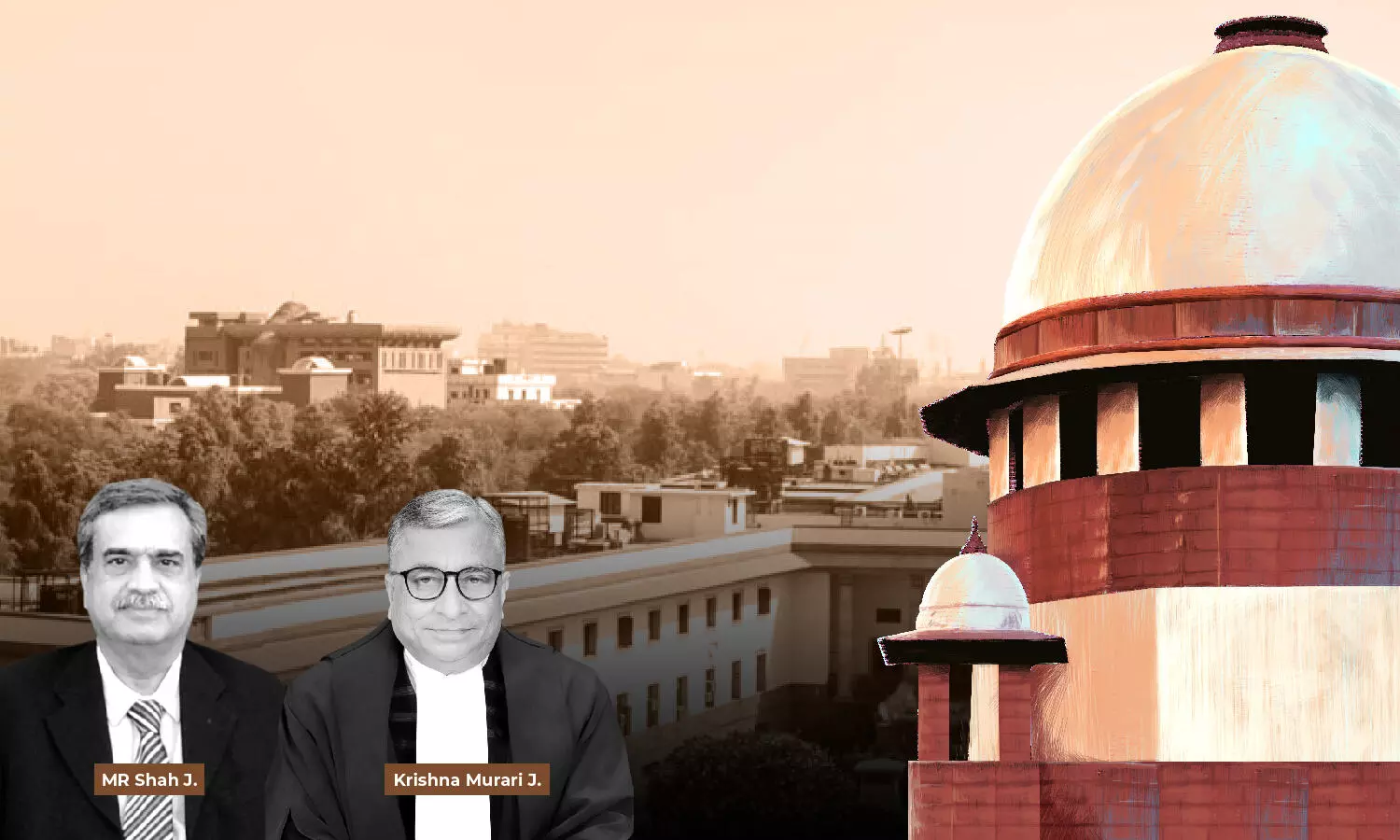
Circumstantial Evidence: Circumstances Should Form Chain Indicating That Crime Was Committed By Accused And None Else- SC
 |
|While setting aside the murder conviction of the Appellants-Accused, the Supreme Court has observed that it was a case based on circumstantial evidence, thus circumstances should form a chain indicating that all in human probability the crime was committed by the accused and none else in all probability.
The Bench of Justice MR Shah and Justice Krishna Murari observed –
"As held by this Court in a catena of decisions, in case of a circumstantial evidence, the circumstances, taken cumulatively, should form a chain so complete that there is no escape from the conclusion that within all human probability the crime was committed by the accused and none else and the circumstantial evidence in order to sustain conviction must be complete and incapable of explanation of any other hypothesis than that of the guilt of the accused and such evidence should not only be consistent with the guilt of the accused but should be inconsistent with his innocence."
In this case, appeals were preferred by the Appellants-Accused assailing the judgment of the Rajasthan High Court by which the Court had upheld their conviction under Section 302 IPC and dismissed their appeals.
Counsels Sangeetha Kumar and Chitrangda Rastravara appeared for the Appellants while Counsel Gurkirat Kaur appeared for the State before the Apex Court.
The Court noted, "At the outset, it is required to be noted that the case rests on the circumstantial evidence. There is no direct evidence by which it can be said that the appellants killed or committed the murder of the deceased. There is no direct evidence recorded indicating involvement of the appellants in the crime and as observed hereinabove, the case of the prosecution is based on the circumstantial evidence."
Further, it was held that there is no evidence that the accused were last seen together with the deceased. There is no evidence what happened after the deceased went to the room and had gone to sleep.
Thus, the Bench observed, "Under the circumstances, the prosecution has failed to prove the guilt and complete chain of events, which may lead to the only conclusion that the appellants - accused alone committed murder and/or killed the deceased."
While holding the conviction of the Appellants is unsustainable for the offence under Sections 302/34 IPC, the Bench held, "Under the circumstances and applying the law laid down by this Court in the aforesaid decisions on circumstantial evidence, we are of the opinion that the Trial Court as well as the High Court have committed a very serious error in convicting the appellants – accused for the offence under Section 302/34 IPC based on such circumstantial evidence."
Accordingly, the Court allowed the appeals and set aside the impugned judgment of the High Court, and acquitted the Appellants-Accused for the offence of murder.
Cause Title - Raju @Rajendra Prasad v. State of Rajasthan